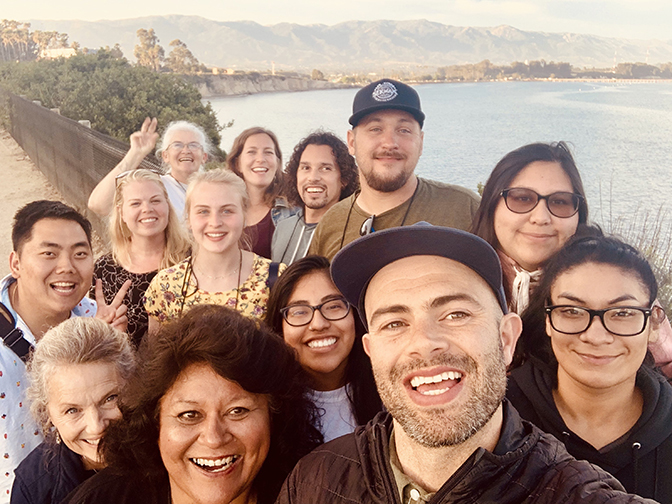Dec. 15 & 16 Negotiations Sessions
Summary:
The District presented their first counterproposals on compensation and benefits at negotiations last Thursday and Friday. The District is proposing raises of 5%, 3%, and 3% for all faculty over the 3 years covered by the contract, with an extra half-percent per year for instructional adjuncts. The 2022-2023 raise of 5% that the District is proposing falls well below the inflation rate for 2022, meaning that it is effectively a pay cut. Furthermore, the extra half-percent the District is proposing for instructional adjuncts does very little to close the parity gap between instructional adjuncts and their full-time counterparts or to allow the District to reach its parity goal of 85%. Non-instructional adjuncts (including counselors and librarians) are already at or above the 85% threshold, but instructional adjuncts still make on average only about 75% of what full-timers make per class.
AFT responded to the District by proposing that all faculty receive raises of 10%, 8%, and 8%, while instructional adjuncts receive total raises of 17%, 15%, and any additional raise needed to reach the 85% goal in the third year of the contract.
AFT is also proposing increases in employer healthcare contributions sufficient to make the Kaiser single, two-party, and family plans free to full-timers. Finally, AFT continues to propose quality, affordable District healthcare coverage for part-timers working at least 40% in SMCCCD, with an expanded reimbursement program for part-timers working at least 40% between multiple community college districts.
READ FULL REPORT HERE (Reports on previous negotiating sessions are on the same page.)
Nov. 21 Negotiations Session
Summary: AFT hoped to receive a compensation proposal from the District today, but the District did not come ready to offer one. Instead, they presented an estimate indicating that offering part-timers medical coverage through District plans would cost $20 million—an order of magnitude greater than AFT’s estimate. The District later revealed that their estimate was based on providing coverage for 1296 part-timers—more than double the 505 part-timers currently working in the District, and 5 times the number of part-timers who would have been eligible to choose District-provided healthplans based on their load in SMCCCD this past fall. The District continues to reject AFT’s language giving all faculty the right to work a certain percentage of their hours remotely, as well as language specifying that off-campus worksites shall be assigned only with the consent of faculty.
READ FULL REPORT HERE (Reports on previous negotiating sessions are on the same page.)
Nov. 2 Negotiations Session
Summary: Contract negotiations continue to stall due to the District’s lack of movement and unwillingness to work collaboratively towards agreement. At today’s negotiations sessions, the first since September 20, the District failed to provide a counter to our proposal on part-time healthcare. They also rejected our proposal to increase Professional Development funding (Article 13), and proposed multiple takebacks on Transfers and Reassignments (Article 12). The District reminded us that 8 articles are now in the “parking lot” due to our inability to make progress towards agreement. For 7 of these 8 articles, the District has repeatedly expressed their unwillingness to move from the status quo.
READ FULL REPORT HERE (Reports on previous negotiating sessions are on the same page.)
Sep. 20 Faculty Contract Negotiations Session Report
Summary: AFT and the District came to an agreement on a Fall 2022 MOU on the effects of the District’s change in masking requirements. This MOU includes provisions for accommodations for faculty who are immunocompromised, live in a household with an immunocompromised person, or have a very young child. It also sets forth a process for faculty and deans to decide how to cover instruction if a faculty member is required to isolate due to Covid, or must care for someone who is isolating.
AFT and the District also continued negotiating over our multiyear contract, with AFT presenting proposals on part-time healthcare, hours of employment (including remote work arrangements), and professional development funding, among other issues.
READ FULL REPORT HERE (Reports on previous negotiating sessions are on the same page.)
Sep. 2 Faculty Contract Negotiations Session Report
Summary: After refusing to even negotiate over an MOU at our last bargaining session, the District opened this session with a proposal to continue the provisions of the MOU from Summer 2022. AFT offered a counter, but the District would not agree to several of our proposals, and discussions on the Fall 2022 MOU will continue at our next session. The parties also discussed contract articles on union rights and part-time seniority.
READ FULL REPORT HERE (Reports on previous negotiating sessions are on the same page.)
Aug. 24th Faculty Contract Negotiations Session Report
Summary: This past Thursday, AFT negotiators put forward an MOU for Fall 2022 that gives faculty the support we need for a successful return to on-campus instruction. Unfortunately, the District’s representatives refused to even negotiate over our proposals, claiming that we are back to status quo and no longer need an MOU. In addition, the District refused to show any movement on our proposals for a month of fully paid parental leave, stronger reappointment rights for part-timers, and a clear timeline and process for faculty with disabilities to obtain reasonable accommodations. These proposals aim to allow faculty to better support our students, and we are disappointed that the District is currently refusing to work towards an agreement on them.
READ FULL REPORT HERE (Reports on previous negotiating sessions are on the same page.)
Aug. 3rd Faculty Contract Negotiations Session Report
Summary: On August 3rd AFT and the District continued to negotiate over AFT’s proposals for paid parental leave beyond that currently guaranteed by Ed Code, and for strengthening part-timer reappointment rights as set forth in Article 19 of our multiyear contract. The parties also discussed new articles proposed by AFT on disability accommodations and course scheduling for full-timers.
READ FULL REPORT HERE (Reports on previous negotiating sessions are on the same page.)
July 28th Faculty Contract Negotiations Session Report
Summary: On July 28th AFT and the District negotiated over a number of contract articles, including Articles 7 (Hours of Employment), 11 (Leaves), and 19 (Part-Time Employment), as well as new articles AFT has proposed that cover class assignment for full-timers and disability accommodations for all faculty. Unfortunately, the District has continued to reject AFT’s proposals for a month of fully paid parental leave, stronger part-time reappointment protections, and the right for both instructional and non-instructional faculty to work a specified percentage of their hours remotely. The District also continues to reject AFT’s proposals for a clear timeline and process for disability accommodation, though they have shown some movement on our proposal for a consistent set of procedures for assigning classes to full-timers.
READ FULL REPORT HERE (Reports on previous negotiating sessions are on the same page.)
Want to help keep your colleagues informed about actions they can take to help us win–and maybe help plan some of those actions? Join our Contract Action Team by emailing AFT 1493 Executive Secretary Marianne Kaletzky at kaletzky@aft1493.org to let us know you’re interested. Together we can make the changes faculty and students need!




